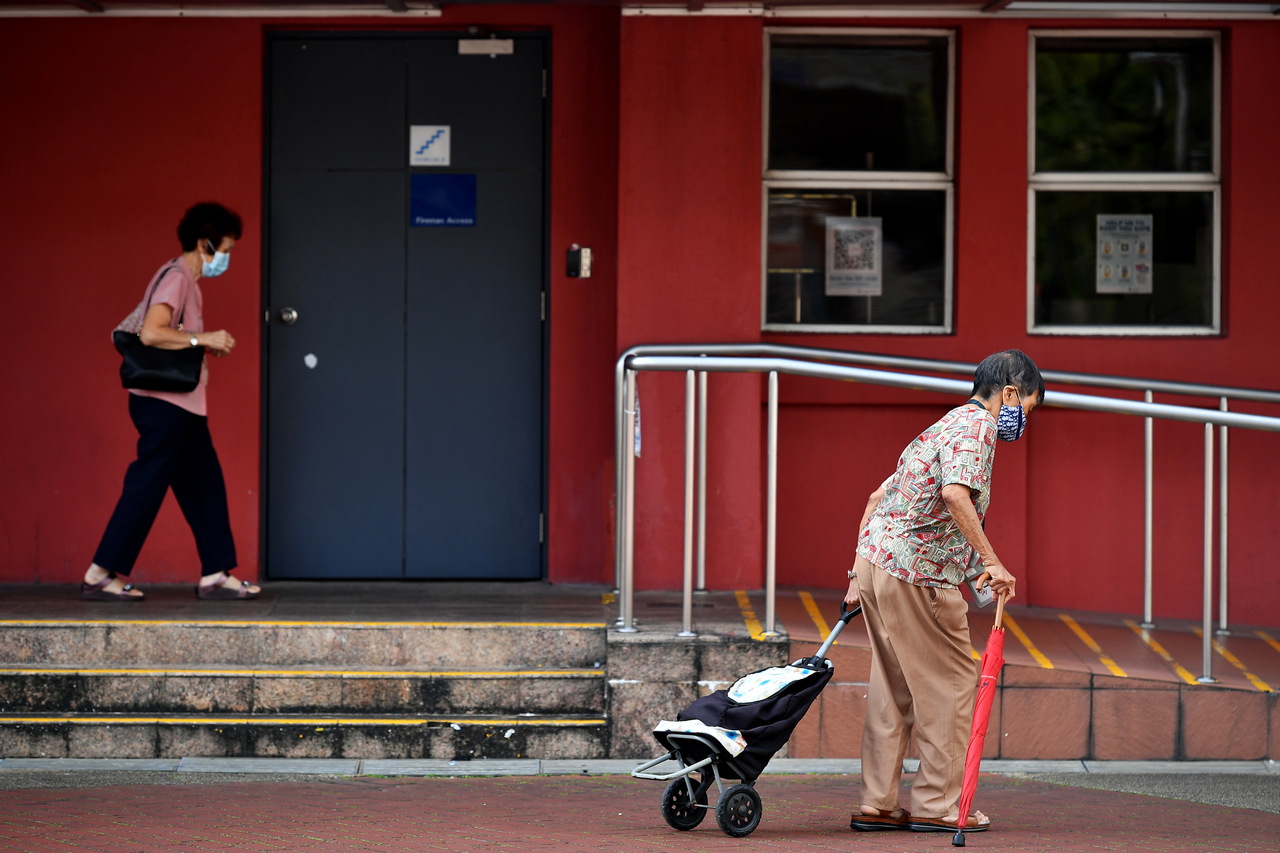Fewer elderly residents were satisfied with life during Covid-19 pandemic: SMU survey
Sign up now: Get ST's newsletters delivered to your inbox

Those who lived alone felt more social isolation or loneliness and hence lower levels of well-being.
ST PHOTO: LIM YAOHUI
Follow topic:
SINGAPORE - The number of elderly residents who reported being satisfied with life dropped as the Covid-19 situation became worse in Singapore early last year, a survey found.
The results of the survey by Singapore Management University's Centre for Research on Successful Ageing (Rosa) were released on Wednesday (March 3).
Rosa's Singapore Life Panel (SLP), a monthly panel survey of older Singaporeans currently aged 55 to 74 as well as their spouses, covered a host of areas including the impact of the pandemic on economic outcomes, the health impact of Covid-19 and the social well-being of older adults amid a changed environment.
Among the roughly 7,500 respondents, 53 per cent reported in January last year that they were satisfied with life, but this figure dipped to 46 per cent in April. The share of respondents satisfied with their economic situation dropped from 41 per cent to 36 per cent in the same period.
With the end of the circuit breaker and gradual reopening, more seniors reported being satisfied with their economic situation although the figure did not hit the pre-Covid-19 level in January last year.
On the health impact of Covid-19 on seniors, the survey found a 31 per cent reduction in doctor visits from January to April 2020. The lower probability of diagnosing chronic conditions and reduced inpatient and outpatient care led to a 23 per cent drop in out-of-pocket medical spending for seniors in the same period.
Those who lived alone felt more social isolation or loneliness and hence lower levels of well-being. Conversely, those who lived alone but engaged in more social activities or communicated more frequently with their friends and loved ones digitally felt less alone and enjoyed improved well-being.
Reflecting on the findings, Rosa director Paulin Straughan spoke of the need for sustained efforts to help vulnerable seniors in society.
"In the last year we saw a lot of outreach happening, a lot of it from volunteers who saw the gaps and stepped up to look after whoever they had sight of. We hope to see more ground-up initiatives going forward.
"We need to tap on resources we have as residents in the community," she said.
Rosa has recommended monitoring the pandemic's long-term health effects among non-Covid-19 patients due to delayed healthcare and worsening mental health as a result of the crisis.
Another suggestion was for the medical community to prepare and promote tele-health practices on a large scale.
Targeted policy interventions were also recommended as a requirement to ensure the well-being of certain groups of seniors, like those living alone, due to their specific needs.

